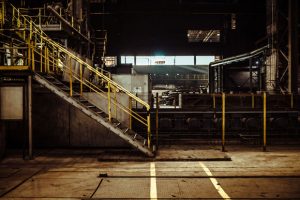UK’s Liberty Steel stares into the abyss
We have written before about Sanjeev Gupta’s GFG Alliance, sometimes as a result of its subsidiary Liberty Steel’s purchase of yet another (usually loss-making) steel asset. We have also covered its foray into alternative metals, such as GFG’s purchase of Rio Tinto’s aluminum smelter at Dunkirk in 2018.
GFG has been admired by many for saving steel businesses that are loss-making or facing closure. While the turnaround of so many businesses would be admirable, the lack of transparency in the group’s dealings have left many skeptical. At the very least, many are left unsure of how profitable the acquisition spree has been.
The failure of GFG’s principal source of funds, Greensill Capital, sent shivers through a large UK workforce. In addition, it again shined a spotlight on GFG’s murky and opaque corporate structure.
The failure to find a ready alternative backer in a relatively liquid financial market speaks volumes about lenders’ reluctance to get involved in an organization that is structured in such a complex — for outsiders, at least — and unfathomable manner.
Do you know the five best practices of sourcing metals, including steel?
Liberty Steel in trouble
The Liberty Steel subsidiary of GFG employs about 3,000 people in the UK at 12 locations. That includes sites in Rotherham, Stocksbridge, Motherwell, Newport and Hartlepool.
The company also owns steel plants in France, eastern Europe, the US and Australia, the Financial Times reports.
But GFG is more a loose alliance of firms rather than a consolidated legal structure. As such, its member parts operate more as independent entities.
This served the firm well in terms of isolating risk and in avoiding scrutiny of relative profitability and the allocation of internal funding. However, it is counting against it now as it scrabbles to find alternative funding following Greensill’s collapse.
While the French government has been quick to provide a €20 million loan to support the Hayange and Ascoval rail-making sites in France, support has come with strings attached. The operations are to be ringfenced from the rest of the group. In the event of failure, Paris will take ownership of the operations, which it views as key for the French rail industry.
GFG seeks bailout
GFG has approached the British government for support, asking for a £170 million loan. However, the approach has been rejected due to “multiple reasons,” Reuters reported – some of which may well be the issues raised above.
It would seem the British government, ideologically averse to state aid in the first place, would rather see the operations go bankrupt and then step in with some form of rescue package, as they did with British Steel before eventually selling it on to the Chinese Jingye Group last year.
Steel prices have been on the rise. However, uncertainty over the group’s future has seen buyers move orders to other suppliers. Sales in some of Liberty’s product range plunged by 60%. Meanwhile, some suppliers are complaining about delays in payment.
The future of Liberty Steel is far from certain. However, it is unlikely the British government would allow the steel business in its entirety to go to the wall. It employs too many people, often in relatively deprived areas. The sector does contain some potentially valuable, and viable, business units making specialty steels the UK would otherwise have to import.
The government seems to prefer offering support until a buyer comes in. However, that would still involve the probable collapse of Liberty Steel. Furthermore, it would mean substantial losses for its creditors and main shareholder, Sanjeev Gupta.
Cut-to-length adders. Width and gauge adders. Coatings. Feel confident in knowing what you should be paying for metal with MetalMiner should-cost models.



Leave a Reply